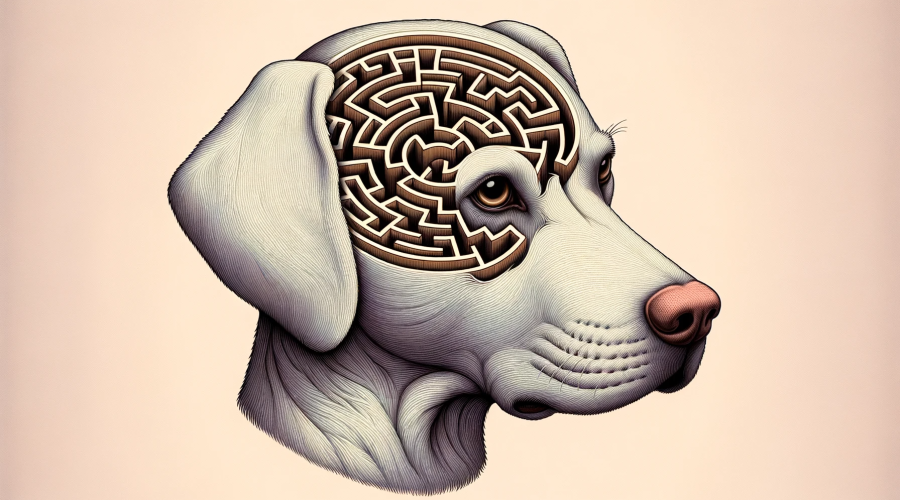A Comprehensive Guide to Understanding Your Dog’s Mind
Dogs have always been man’s best friend, but how often do we truly understand what’s going on in their furry heads? Unravelling the complexity of canine cognition can be an intriguing journey, allowing us to connect better with our beloved pets.
The Cognitive World of Dogs
Dogs are far more intelligent than we often give them credit for. They can understand human emotions, recognise faces, and even solve complex problems. In fact, research suggests that dogs have a cognitive structure similar to a two-year-old human.
Understanding Your Dog’s Emotions
Like humans, dogs experience a range of emotions such as happiness, sadness, fear, and anxiety. They express these emotions through body language and vocalisation. Learning to interpret these signals can lead to a more harmonious relationship with your pet.
Cognitive Development in Dogs
A dog’s cognitive abilities evolve as they grow, with puppies learning to understand basic commands and older dogs developing problem-solving skills. Mental stimulation through games and puzzles is crucial to this development.
Enhancing Your Dog’s Cognitive Abilities
Just like humans, dogs benefit from mental exercises. Regular training sessions, puzzle toys, and interactive games can help keep your dog’s mind sharp.
Dealing with Cognitive Decline
As dogs age, they may experience cognitive decline, similar to dementia in humans. Early detection and intervention can help manage this condition and ensure your dog’s wellbeing.
The Role of Diet in Canine Cognition
A balanced diet rich in antioxidants and omega-3 fatty acids can support your dog’s cognitive health. Consult with your vet for the best dietary plan for your furry friend.
Understanding canine cognition is a rewarding experience that can deepen the bond between you and your dog. So, step into your dog’s paws and explore the fascinating world of their mind.
FAQs:
1. How can I tell if my dog is experiencing cognitive decline?
Cognitive decline in dogs can manifest as forgetfulness, confusion, or changes in behaviour. Consult a vet if you notice any unusual behaviour.
2. Can dogs understand human emotions?
Yes, dogs are sensitive to human emotions and can often mirror their owner’s emotions.
3. How can I mentally stimulate my dog?
Mental stimulation for dogs can include puzzle toys, interactive games, training sessions, or even simple tasks like finding hidden treats.
4. What is a good diet to support my dog’s cognitive health?
A diet rich in antioxidants and omega-3 fatty acids can support your dog’s cognitive health. However, it’s best to consult with a vet for individual dietary advice.
5. Can dogs solve complex problems?
Yes, dogs have been known to solve complex problems, particularly when motivated by rewards like treats or praise.

